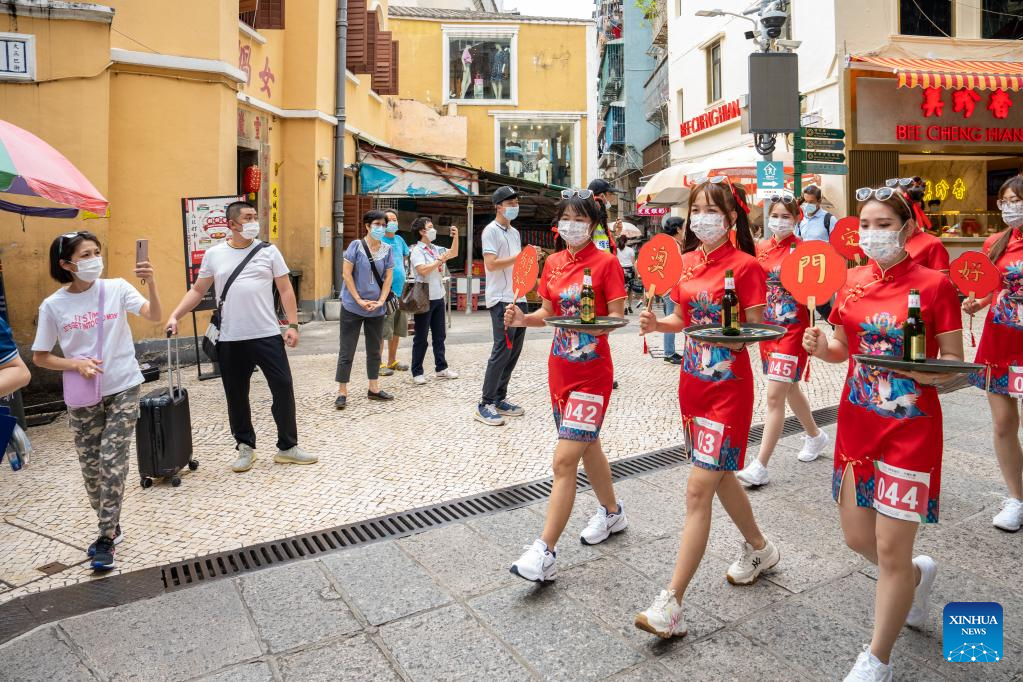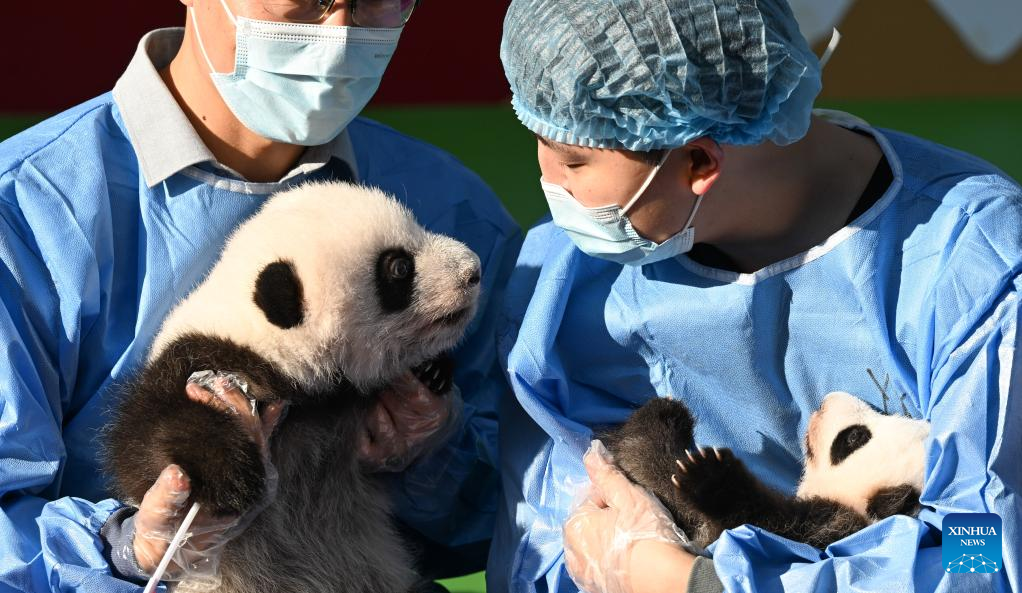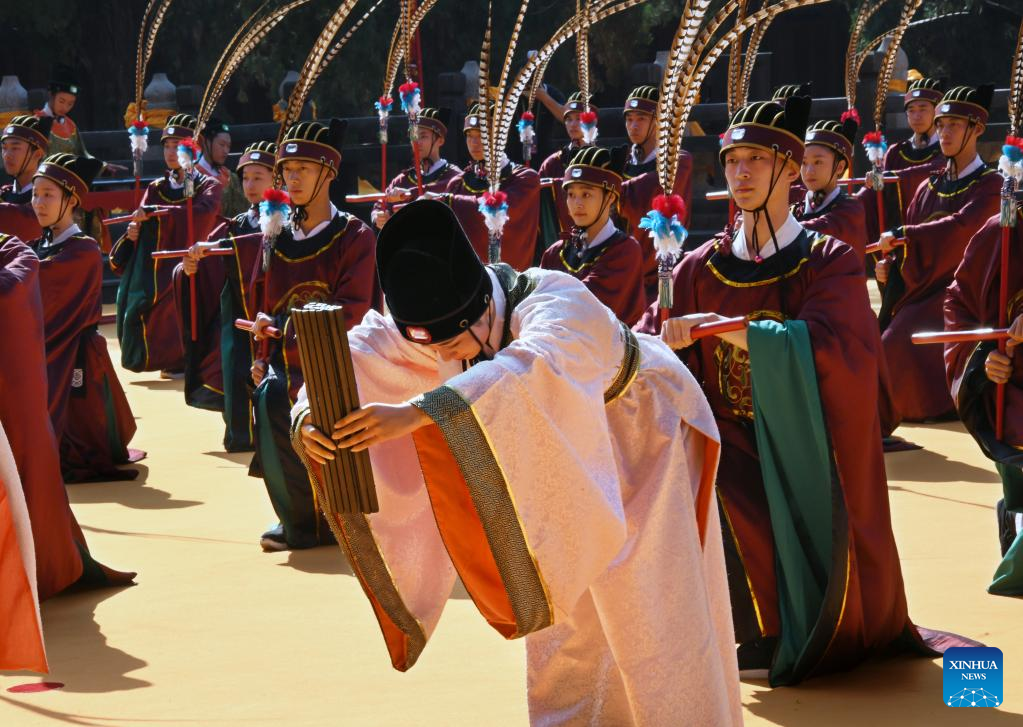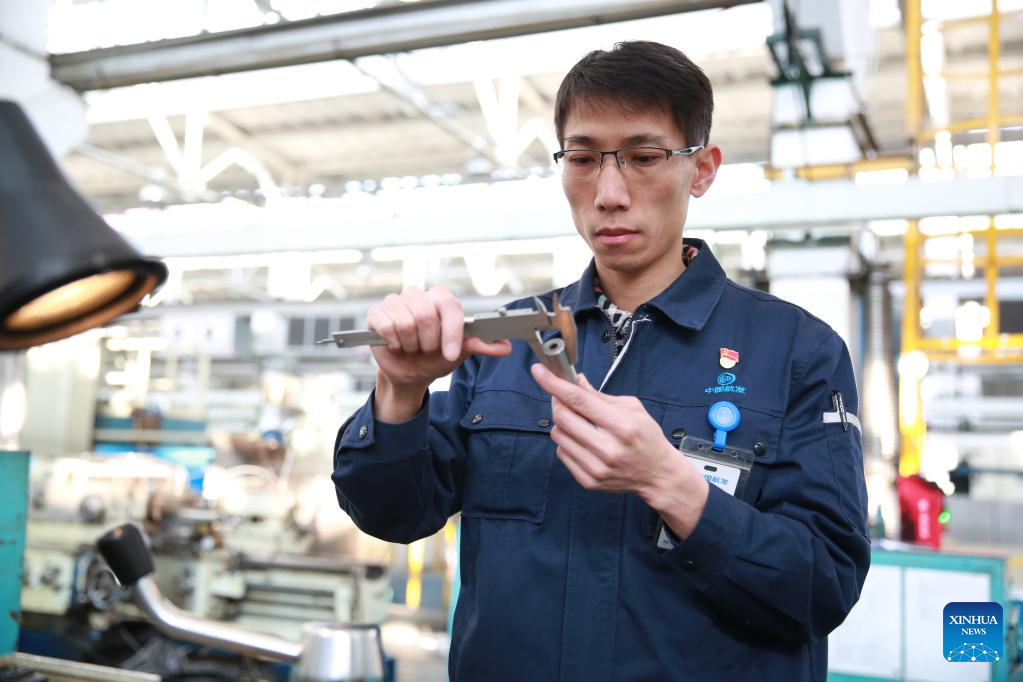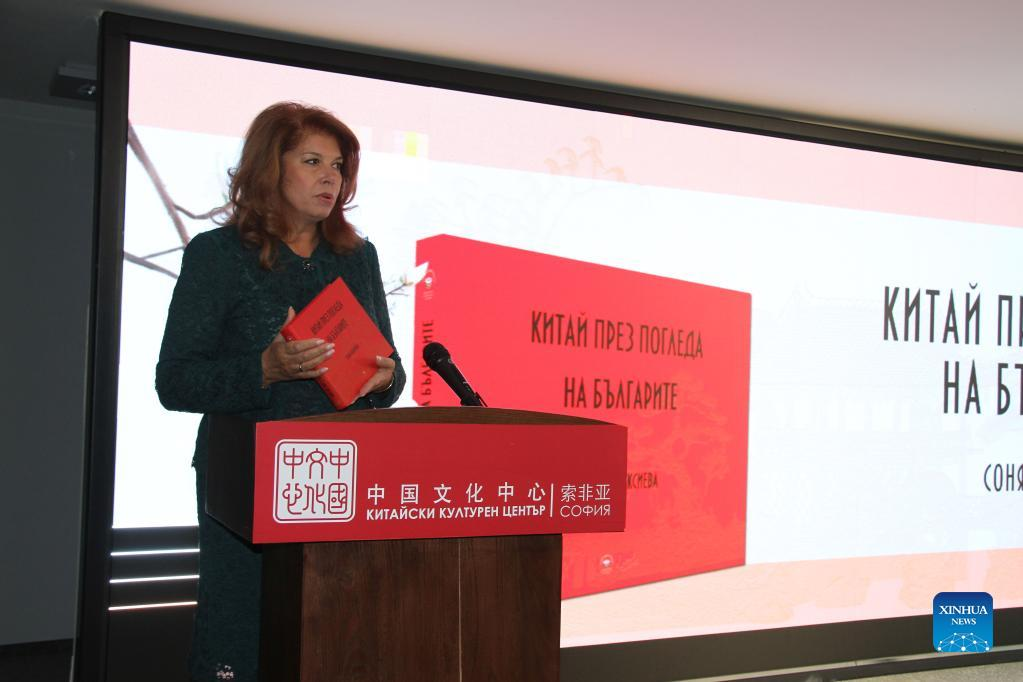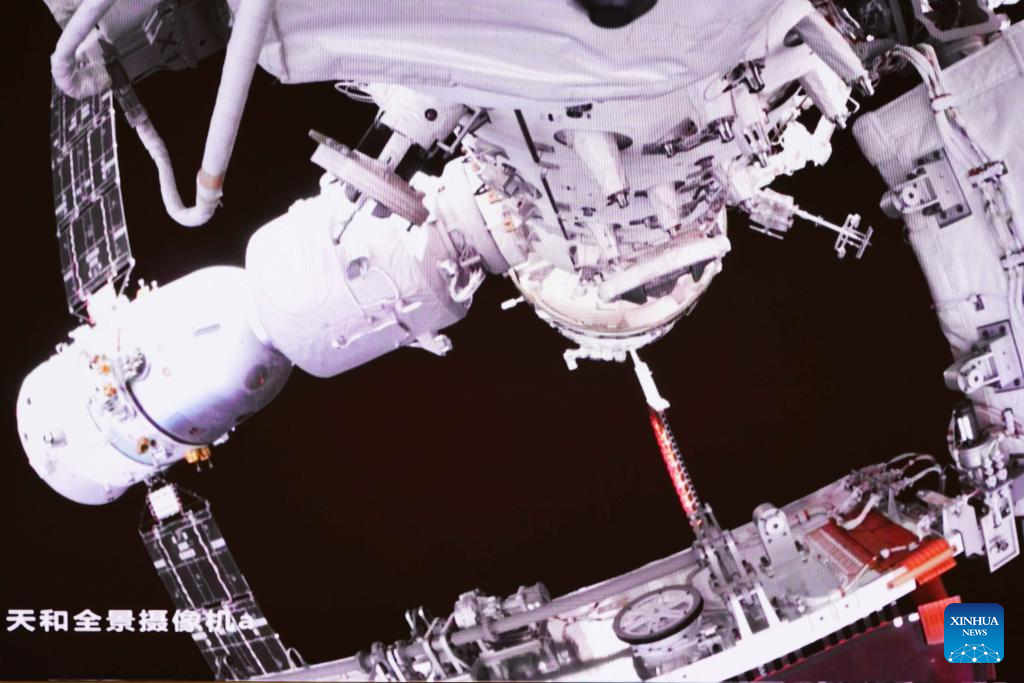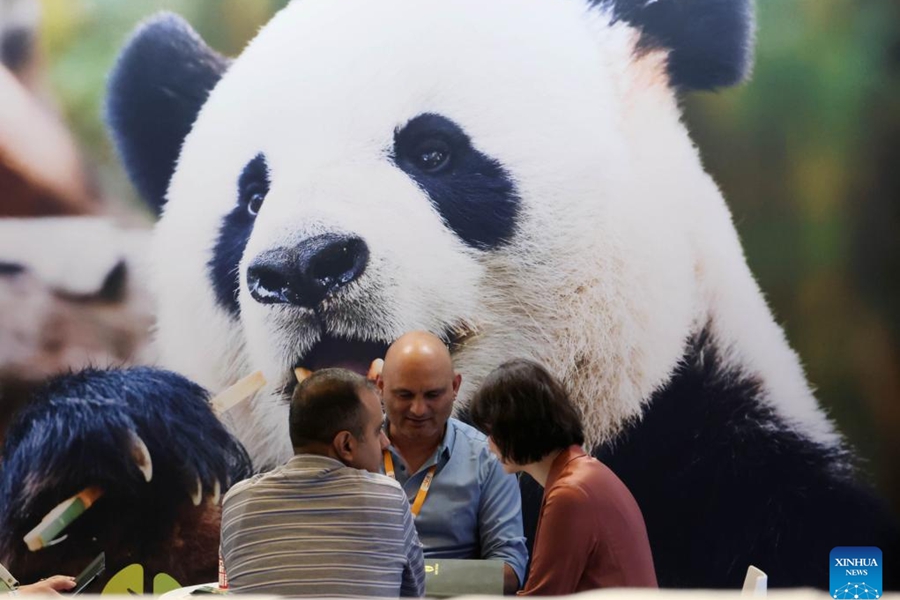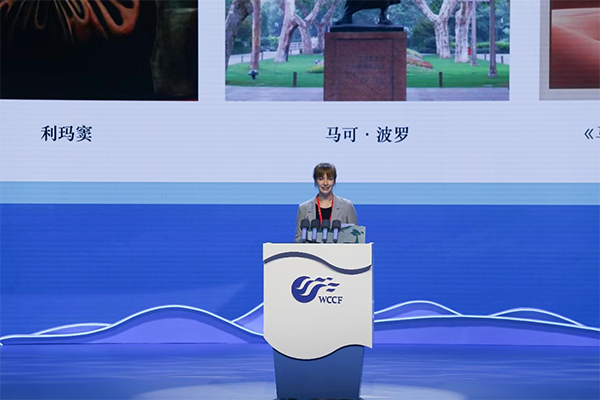
The 2023 World Canal Cities Forum opened in Yangzhou City of Jiangsu Province on August 24, with guests from home and abroad holding discussions around the heritage protection and sustainable development of canal cities.
At the opening ceremony, Pakistani Ambassador to China Moin ul Haque said every waterway in the city has its own story. "As I strolled along the historic Dongguan Street, it seemed to me that I could hear the voices of the ancients bargaining in the market, see poets contemplating lines in the lamplight, and feel family members gathering on the riverbank to share their experiences. The canal is like a storyteller who keeps historical accounts alive so that we can move ahead together with the past in heart."
All 13 cities that have subordinate districts in Jiangsu are engaged in the construction of the Grand Canal Cultural Belt and also actively involved in building the Grand Canal National Cultural Park, said Professor He Yun’ao, head of the Cultural and Natural Heritage Institute of Nanjing University. In his keynote speech at the forum, He added that the ancient waterway system as a cultural relic from the past also holds distinctive relevance in the present.
At the provincial level, Jiangsu has taken the lead in planning the Jianghuai Ecological Corridor spanning 1,800 square kilometers, which functions as water purification facilities for the man-made waterway. In Yangzhou, the solid efforts to preserve heritage and pursue green development in recent years have led to significant results.
For example, the Yangzhou section of the Grand Canal shares the water in the South-to-North Water Diversion Project. Since October 2013, the city has delivered more than 56 billion cubic meters of clean water to the north, equivalent to the amount of water in 3,500 West Lakes in Hangzhou, directly benefiting more than 100 million people. Notably, the rare Yangtze finless porpoise, known as the "giant panda of the water," has been spotted frequently at the Sanjiangying area of the Yangtze River in Yangzhou, which also serves as a water intake for the eastern line of the diversion project. The species’ presence reflects the improved ecological environment in the city.
Wang Jinjian, Party chief of Yangzhou and also Chairman of World Historic and Cultural Canal Cities Cooperation Organization (WCCO), said the city is committed to building clean water channels and has designated an area of 340 square kilometers near the water intake as the core protection zone. Additionally, the area within 100 meters on both sides of the channel has been placed under ecological control. These efforts have helped improve the water quality to reach national assessment standards.
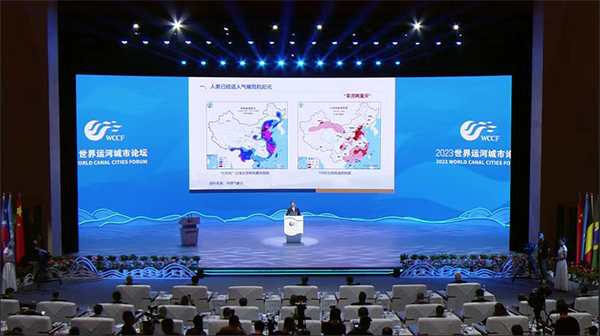
Participants in the forum also included Ma Weihua, a member of the Steering Group of the SGC Impact and chairman of National fund for Technology Transfer and Commercialization(NFTTC). In his view, the forum shoulders multiple missions in heritage protection, sustainable development, and economic and cultural exchanges and cooperation. "The continuity and inheritance of canal culture need to be supported by a mindset of green and low-carbon development so that everyone can embrace eco-friendly practices, creating an environment favorable to the waterway to flow and flourish,” he said.
The central topics in the forum included how to better utilize the cultural, ecological and economic values of the canal under the premise that good protection is guaranteed.
The forum showed a pre-recorded video speech by Brian Cowen, former prime minister of Ireland. Standing beside the River Shannon, the longest river in Ireland, Cowen said Shannon is also one of inland tourism destinations, providing cruise ship and leisure facilities for visitors to experience the country’s unique charms.
Among the speakers, Chen Wei, Party chief of Jiaxing City in Zhejiang Province, noted that the Grand Canal serves as a bond between the two cities of Jiaxing and Yangzhou. Chen stated that Jiaxing has made every effort to protect, inherit and utilize the Grand Canal in recent years, such as implementing ecological restoration across the entire water area, tentatively building a green belt, launching a heritage protection initiative, and establishing the Jiangnan Culture Museum. Furthermore, Jiaxing has stepped up measures to integrate its ancient towns for more effective branding, and the city’s cargo volume through the river-sea intermodal transport has steadily ranked first in Zhejiang.
Launched in 2007, the World Canal Cities Forum has played the role of facilitating communication, exchange and the spread of civilization, becoming an important platform for cooperation, sharing, and win-win situation for canal cities worldwide.
In his speech, Rudy Van der Ween, President of Inland Waterways International (IWI), said the world today faces unprecedented challenges and the need for effective communication and collaboration has never been stronger. He called for all sides to leverage the forum for fruitful cooperation.
The forum also proposed the "Yangzhou Initiative" on the heritage protection and low-carbon development of canal cities after guests held in-depth discussions. It called for those cities to focus on people’s happiness, vibrant culture and tourism, clean and beautiful environment, and inclusiveness in development.
Contact us at english@jschina.com.cn

